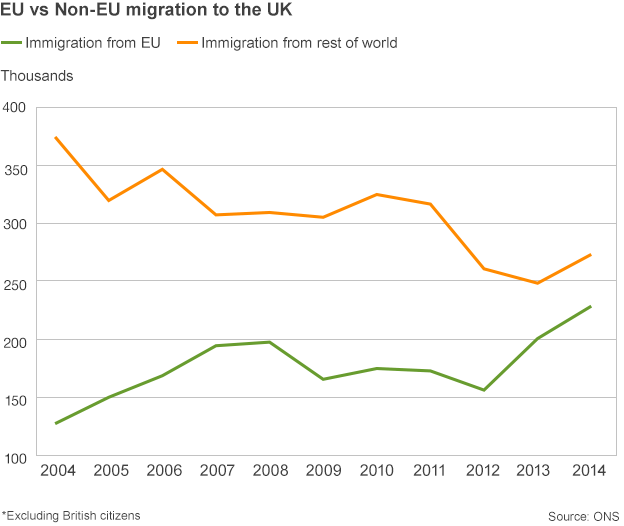One of the main reasons often cited for voting Brexit is to curb immigration. I have a few issues which I'd like to set out.
Firstly, non EU immigration makes up approximately half of the total immigration into the UK in current figures, and has been much higher historically speaking.
It has always been within the government's power since we've been in the EU to control and restrict non-EU immigration as they see fit. The fact that we haven't enacted policies which would curb non-EU immigration could suggest one of two things. Either there hasn't been enough support for such policies from the public, or the government believes their economic cost is more than offset by their economic benefits. Regardless, the power to reduce immigration was there, and the government didn't use it. So what's to suggest that after Brexit when the government has the power to reduce EU immigration, it will use it? As in, why not instead campaign for reduction of non-EU immigration instead of Brexit- which has many more economic disadvantages e.g. loss of single market access.
Secondly, the average EU migrant contribution post 2000 has been found by a study to be £1.34 in taxes for every £1 received from the state.
https://www.theguardian.com/uk-news/2014/nov/05/eu-migrants-uk-gains-20bn-ucl-study
https://fullfact.org/immigration/do-eu-immigrants-contribute-134-every-1-they-receive/
Therefore, the argument that increased immigration strains public services seems to be a fallacious one. Since they are on average net contributors, a reduction in immigration would lead to a proportionately higher drop in tax revenue, thus deteriorating public services per capita.
The only answer I can think of, is that it is a result of confirmation basis, and the lack of 'perceivable' benefits of immigration to the layman. But perhaps someone else could enlighten me.
